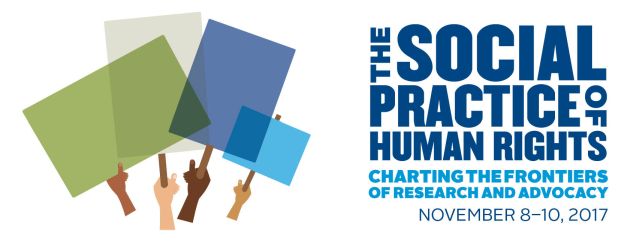
Start Date
11-8-2017 1:30 PM
Keywords
human rights, protest, political repression, Latin America
Abstract
The systematic study of political repression and human rights violations has found a number of factors that consistently explain political repression. These especially include domestic structural and institutional factors, such as civil war, democracy, a youth population bulge, aspects of the legal and judicial system, and the role of oil in the economy.
These findings do not chart a clear path for human rights advocates, as it is difficult to change a country’s institutions or demographics or to end a civil war (Toft 2010). This growth of scholarly interest followed an expansion in international human rights advocacy, evidenced by a growing number of human rights treaties, human rights NGOs, and state support for human rights principles.
But evidence on the effectiveness of these international institutions, pressures, and actors is mixed. Risse and Sikkink (1999) and Simmons (2009) argue that popular mobilization within an abusing state is needed in combination with these pressures. This paper uses original data on popular mobilization, including human rights protests, in Latin America during a period of human rights abuse and regime change (1981-1995). Following on earlier research (Franklin 2014), I distinguish between human rights protests focused on specific instances of repression and those that focus on human rights violations more generally.
I find that such general human rights protests are associated with improvement in a variety of standard human rights indicators, controlling for other important factors. Furthermore, narrowly focused human rights protests or levels of protest across all issues have much weaker associations with repression. A closer examination of the countries in the quantitative analysis suggests that an important factor in improving human rights is the convening of official commissions to investigate human rights, which only occurred in countries that combined general human rights protests with democratization.
Furthermore, a complete understanding of human rights requires consideration of apolitical repression, which does not target political opponents of the government. Democratization does not necessarily prevent this type of repression, but an active human rights movement does help.
Included in
The Path to 'Never Again': Human Rights Protest in Latin America
The systematic study of political repression and human rights violations has found a number of factors that consistently explain political repression. These especially include domestic structural and institutional factors, such as civil war, democracy, a youth population bulge, aspects of the legal and judicial system, and the role of oil in the economy.
These findings do not chart a clear path for human rights advocates, as it is difficult to change a country’s institutions or demographics or to end a civil war (Toft 2010). This growth of scholarly interest followed an expansion in international human rights advocacy, evidenced by a growing number of human rights treaties, human rights NGOs, and state support for human rights principles.
But evidence on the effectiveness of these international institutions, pressures, and actors is mixed. Risse and Sikkink (1999) and Simmons (2009) argue that popular mobilization within an abusing state is needed in combination with these pressures. This paper uses original data on popular mobilization, including human rights protests, in Latin America during a period of human rights abuse and regime change (1981-1995). Following on earlier research (Franklin 2014), I distinguish between human rights protests focused on specific instances of repression and those that focus on human rights violations more generally.
I find that such general human rights protests are associated with improvement in a variety of standard human rights indicators, controlling for other important factors. Furthermore, narrowly focused human rights protests or levels of protest across all issues have much weaker associations with repression. A closer examination of the countries in the quantitative analysis suggests that an important factor in improving human rights is the convening of official commissions to investigate human rights, which only occurred in countries that combined general human rights protests with democratization.
Furthermore, a complete understanding of human rights requires consideration of apolitical repression, which does not target political opponents of the government. Democratization does not necessarily prevent this type of repression, but an active human rights movement does help.


